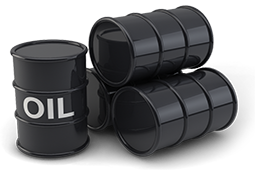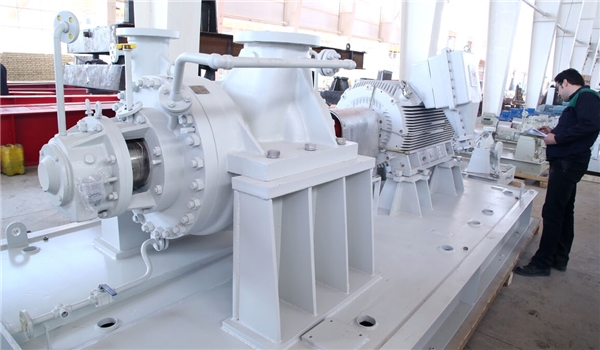
Iran Pockets $200 Million Through Indigenizing Oil Industry Equipment

Speaking during a visit to Hasheminejad Gas Refinery, Head of the RIPI Jafar Towfiqi said the institute had saved the country $200 million by supporting knowledge-based companies and providing and commercializing data-x-items needed in the industry.
He underlined the necessity of continued cooperation between the refinery and the RIPI, adding the institute operated as the research arm of the Iranian Ministry of Petroleum and provided technological services in all sectors of the oil and gas industry.
Towfiqi further said that the RIPI cooperated with knowledge-based firms for addressing the needs of the petroleum ministry of the country which had so far led to saving $200 million in the current calendar year, which began on March 21.
The official said that RIPI was now able to supply data-x-items that were previously imported by domestically producing the items.
Late in October, Iran put into operation its first smoke-free flare system in Ahvaz Operating Unit No. 2, after the country’s decision to end gas flaring in the Southern oilfields, despite US obstructing the transfer of technology to the country.
Managing Director of Karoon Oil and Gas Production Company Qolamreza Mofidi outlined features of the system, saying by launching the system, environmental pollutants in the vicinity of Ahvaz metropolitan area would be reduced and burning of 10 million cubic feet of gas per day would be prevented.
He said an investment of 15 billion rials ($357 million) has been made to develop and launch the system, adding that all the costs of the project would be reclaimed in a matter of three months.
The official further added that the system has been developed by domestic experts at the National Iranian South Oil Company, voicing the company’s readiness to carry out similar projects in other operational districts of the country.
Flaring is the burning of natural gas that cannot be processed or sold. The flaring of APG is an important safety measure at many oil and gas production sites, as it prevents industrial plant equipment from over-pressuring and exploding.
On September 22, Iranian Oil Minister Bijan Namdar Zanganeh said that Iran was unable to import machines and equipment needed to contain flare, the gas burnt or vented at oil and gas production facilities which is highly detrimental to the environment.
“The sanctions are anti-human and anti-environment,” he said, adding, “They don’t let us import equipment we need to prevent sulfur burning or equipment through which we refine non-standard gases.”
The minister said sanctions were hampering shipment of machines ordered and paid by Iran, some of them totally ready for transportation into oil processing facilities south of the country.
“That is why we say the sanctions have targeted the entire Iranian nation,” said Zanganeh, adding, “They are both anti-human and a crime against humanity.”
Iran has made major progress in using flare gas either for power generation or as a feed to refineries. Recent reports suggested the country has made an investment of above $5 billion in those projects over the past years.
Late in July, it was announced that Iranian experts at Jam petrochemical company designed and produced 1,000 industrial petrochemical parts which had earlier been imported from foreign states.
Two weeks before that, Iranian Oil Minister Bijan Namdar Zanganeh announced that the country successfully completed installing a super-size drilling rig at South Pars gas field in the Persian Gulf, the largest in the world, without any foreign company involved after Tehran made its industries self-sufficient to defy the US unilateral sanctions.



Trump weighs using $2 billion in CHIPS Act funding for critical minerals

Codelco cuts 2025 copper forecast after El Teniente mine collapse

Electra converts debt, launches $30M raise to jumpstart stalled cobalt refinery

Abcourt readies Sleeping Giant mill to pour first gold since 2014

Barrick’s Reko Diq in line for $410M ADB backing

Nevada army depot to serve as base for first US strategic minerals stockpile

Tailings could meet much of US critical mineral demand – study

Viridis unveils 200Mt initial reserve for Brazil rare earth project

SQM boosts lithium supply plans as prices flick higher

Energy Fuels soars on Vulcan Elements partnership

Northern Dynasty sticks to proposal in battle to lift Pebble mine veto

Giustra-backed mining firm teams up with informal miners in Colombia

Critical Metals signs agreement to supply rare earth to US government-funded facility

China extends rare earth controls to imported material

Galan Lithium proceeds with $13M financing for Argentina project

Silver price touches $39 as market weighs rate cut outlook

First Quantum drops plan to sell stakes in Zambia copper mines

Ivanhoe advances Kamoa dewatering plan, plans forecasts

Texas factory gives Chinese copper firm an edge in tariff war

Energy Fuels soars on Vulcan Elements partnership

Northern Dynasty sticks to proposal in battle to lift Pebble mine veto

Giustra-backed mining firm teams up with informal miners in Colombia

Critical Metals signs agreement to supply rare earth to US government-funded facility

China extends rare earth controls to imported material

Galan Lithium proceeds with $13M financing for Argentina project

Silver price touches $39 as market weighs rate cut outlook

First Quantum drops plan to sell stakes in Zambia copper mines

Ivanhoe advances Kamoa dewatering plan, plans forecasts

















